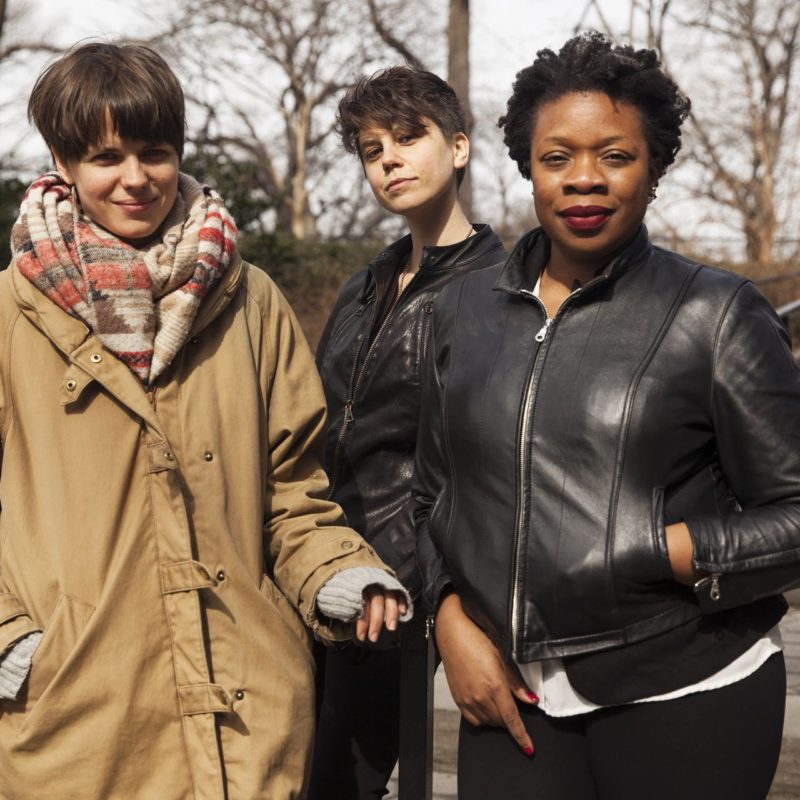The Women of The Playwrights Realm 2016/17 Season
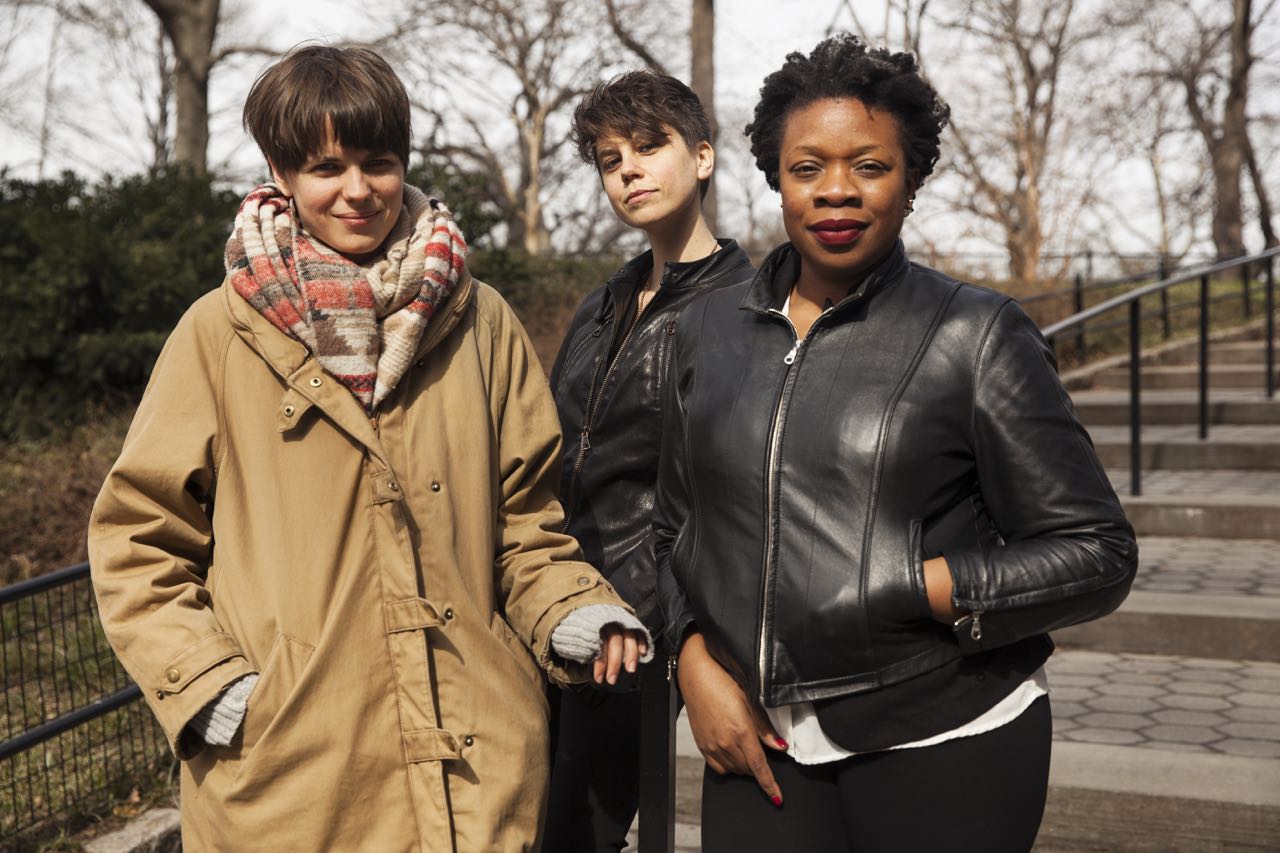
Written by Victoria Myers
Photography by Jessica Nash
March 2nd, 2017
The New York City theatre company The Playwrights Realm has become known as one of the city’s premiere organizations for early career playwrights, with their programs and productions serving as a launching pad for successful careers in the theatre. Earlier this year they produced Sarah DeLappe’s The Wolves, which made it to an Off-Broadway run and Mindy Kaling’s Instagram. They’re currently producing Jen Silverman’s The Moors followed by Mfoniso Udofia’s Sojourners/Her Portmaneau. Three plays by three women. We recently sat down with Sarah, Jen, and Mfoniso to discuss Playwrights Realm, their writing processes, and new play development.
Let’s have everyone go around and explain their relationship with Playwrights Realm.
Mfoniso: My name is Mfoniso Udofia. In 2012-2013 I came in as one of Playwrights Realm’s writing fellows, and then in 2016 they world premiered my first play in my nine-play cycle Sojourners. Now I’m back with them as they are working in association with New York Theatre Workshop on two of my plays—Sojourners and Her Portmanteau.
Sarah: My name is Sarah DeLappe. And I came into the Playwrights Realm in a somewhat unusual way. They saw a workshop of my play The Wolves in 2015 and then I became the Page One Playwright for 2016/2017, and they produced that same play, The Wolves, in the fall of last year.
Jen: My name is Jen Silverman and they produced my play Crane Story in 2011. And now we’re doing The Moors, which premiered at Yale Rep last year, and this is the New York premiere. Between the Yale Rep premiere and this, I’ve gotten to go back into the play and rewrite essentially the first third of it. So we’re really getting to test some changes. I’m one of their alumni so I’ve been in the alumni group with them since 2012.
What’s each of your processes as writers?
Jen: Nothing is ever true across the board, but I think in general my obsessions are character and structure. And so I’ll either start from a place of having a character that I really want to follow and I have a lot of questions about who they are in the world and what they do and I want to explore those questions by following them. Or sometimes I’ll start from the outside in, in that there’ll be a particular way that I want to invite an audience to encounter a theatrical experience and a particular way I know I want that theatrical experience to change as they encounter it. And then knowing that skeleton, I’ll think really hard about what are the questions that are best approached by undergoing that experience.
Sarah: I feel like it’s different with every play for me. But someone once described to me that writers would be mole writers or hawk writers. And if you were a mole writer, you write word by word and you have no idea where you’re going and you’re just like digging through the dirt until you get out and into the light. And if you’re a hawk writer, you come from above and you look down and you see the entire blueprint and then you dive down from the macro to the micro. I feel like I am a mole, and I have no idea where I’m going when I start something, but I’m just following the language and seeing where it takes me.
Mfoniso: I think I predominantly start from a question. Right now I’m writing nine things and all of them have a central question attached to them. It’s usually a question that I’m logically trying to figure out in my life and I’m unpacking that. Sometimes it comes in a fever dream and the question is there and I write the play in two weeks and then I spend two years editing. Sometimes I’m like, “Here is a question,” and then there is a block and I’m trying to figure out how to answer the question through the play and then I’m like a mole. None of my plays to date have answered anything concretely. But the exercise.
Do you guys tend to do a slow first draft or quick?
Mfoniso: It really depends.
Sarah: Yeah, it really varies.
Jen: Yeah it depends. The image that comes to my mind is sort of running through a labyrinth after a light, and when I can see the light ahead of me, the draft is very quick. And then what I have to do is go back and sort of really dig into it. But I’ve found recently that with certain commissions, where the parameters are so clear from the start, and I know sort of where I’m going, that for the first time in my life I’m writing drafts over a lot of time. Where it really is putting one foot in front of the other and then stopping and really just sitting there and thinking, “Okay now where are we?”
Mfoniso: I’m doing something similar, I find. The one piece that I had that was a commission, it took a long time. Not everything was organic. So I was definitely mole writing—I think I’m going to use that forever, thank you. Usually, I give myself a long amount of time so there’s no pressure to write. And I’ll wait, wait, and then spit out a draft, but I’ve been writing in my mind for a year. And then a draft comes out, and then I’ll edit that for a couple of years. So if I’m really myself, I’ll just wait, before I ever put pen to paper, until I know a little bit more.
Sarah: Your process speaks to me. I think it’s called periodic equilibrium. The idea that evolution happens in like short bursts after years and years and years of building something, and then all these species die and there are all these changes going on. I feel like that’s how I write. It’s a very long buildup to, and then a very quick draft that then dies and gets replaced by another one, and then that dies, and [gets] replaced by another one.
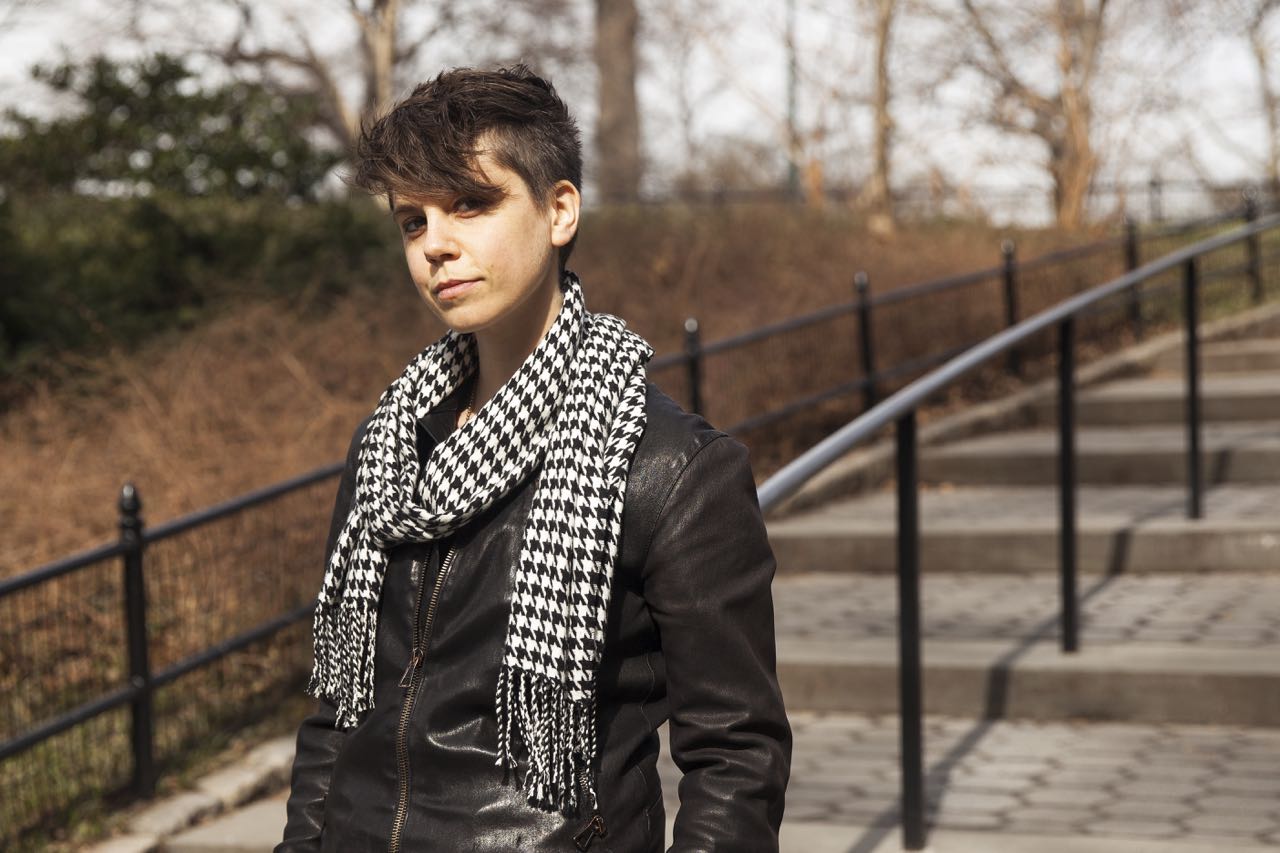
How much time have you all devoted to actually figuring out what your process is and how it fits into your life in a larger sense?
Mfoniso: I have to say, I don’t think about my process unless somebody asks me about it. It’s when I’m doing an interview like this or doing an interview for a residency and somebody’s like, “Well what’s your process?” And then I’m going through my brain going, “I guess it’s this.” I know that I write every day and I know that I write plays. But I don’t hyper-obsess with the way of them. It’s not really a part of my day-to-day thinking about what my process of writing is beyond, “Did I want to write today? And did I write today?”
Jen: I also think everything changes so much day to day. For me, it’s really hard to say, “My process is that, every day. I’ll do this thing at this time or in this way.” For me, it’s about an ongoing momentum, and how do you keep that momentum happening. If I’m balancing three different projects or three different genres, then the thing is how do I keep the love and excitement for one project moving forward, even if I can’t touch that play for two weeks because I have this other thing due. That’s the balancing act in a way.
Mfoniso: It’s more about balancing than the process itself.
Sarah: And it’s about focus and being able to carve out the space and time in your life to sit down and do it. I never think about process unless I’m forced to. I feel like it’s kind of a state of being rather than an active thing.
Lets talk more about balancing and how you learned to do that and build the life of the playwright. Because it seems like there’s not an instruction manual for that.
Jen: I wish there was. I wish someone gave it to me a while ago. There’s so many different answers, right? But, for me specifically, the answer was I ended up going to grad school because I wanted three years in which I could do nothing but write and think about craft and focus on what I wanted to say and not be worried about production, not be worried about participating in the industry, but only in the art. Which is what grad school is for. And in some ways it’s hugely indulgent, and in other ways I think it was hugely necessary for me. I know a lot of playwrights who didn’t do it and they didn’t miss it either. So for me, it was going to grad school and then coming out of grad school with a strong sense of myself as a writer and a strong sense of what questions I wanted to pursue. And then, from there, the balance has been that I was teaching for a while. I’m really lucky in that this year I have the PoNY Fellowship [at the Lark], so I got to quit teaching and I have one year that is essentially only for writing and being at rehearsal. And that is, in every way, due to the Lark. The balance for me has been teaching and carving out time to read and applying to residencies so that I could replicate the grad school experience but on a much smaller level. The thing is that now, the balancing is starting to shift into balancing theatre with TV and film. I wish that someone had told me when I was going to grad school that you will never make a life only as a theatre artist, and that’s actually okay and it’s not necessarily a bad compromise. It doesn’t mean that you’re giving up. You literally just have to do more than one thing if you want a life in the arts. Pick the thing that you love and do that alongside the thing that you love the most, which is theatre.
Sarah: That’s something I’m experiencing right now: wading through how to be a writer for the theatre and also find a way to support myself. And I feel like it is a question of just figuring out what is the best way to strike a balance and to somehow protect your space as a writer for the stage. I’m in grad school right now at Brooklyn College. I love it. I don’t want it to end, but it will. I’ve found it enormously helpful in terms of just creating space in my life to read, which I think is also such a big part of being a writer.
Mfoniso: The balance question has not been easy. And there’s a real difference between what’s happening today as opposed to what was happening when I started out. When I started out, I came from acting school and I didn’t want to go back to school—I’m getting hives just thinking about it now—I was not going to school for playwriting. I knew that I want to write plays. I came out during the worst recession. It was 2009, so getting a job was really hard. I was burning the wick at both ends. I was a starving artist. We romanticize it, but it’s not fun. It’s staring down the barrel of homelessness and going, “I really don’t have money for rent, I really don’t have money for food.” And that was a sacrifice, and I think I made it very joyfully, but I look back now [at me] seven years ago going, “Mfoniso Udofia, you are insane.” With that kind of balancing, something’s got to give, and sometimes relationships gave, sometimes jobs gave. Now I’m finding that there are so many projects and so many things coming in that it’s like, how do I find the time to the find the thing that’s burning for me? And that is a difficult navigation. So it’s getting used to struggle. I think somewhere around year two or three I became okay. And let me also say that I’ve been insanely blessed with residencies and jobs lately. [Right now] I’m working a full time job that lets me dip out for two months. That’s unheard of in New York. So I’ve also, all of a sudden, started to find the balancing a little easier.
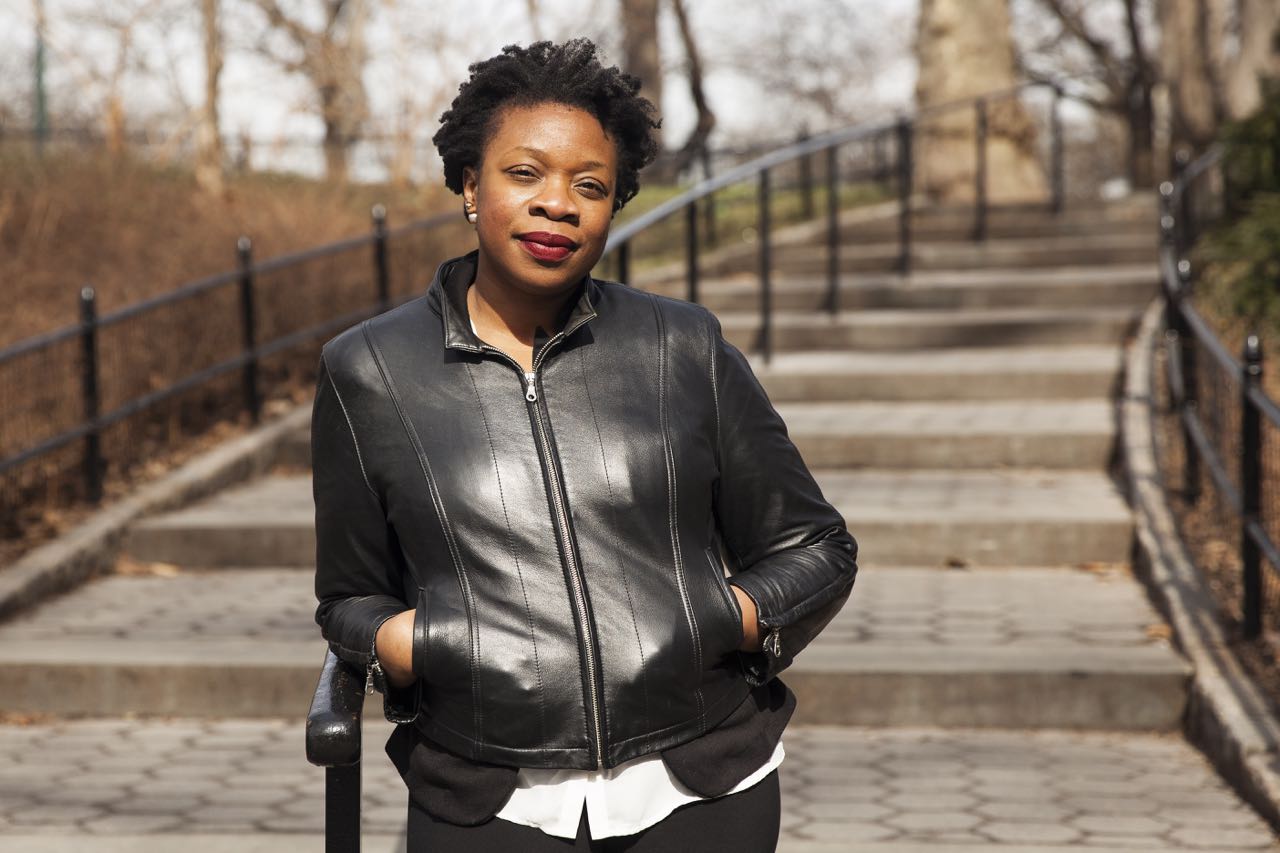
How do you feel Playwrights Realm has affected your work and your development?
Jen: For me it’s super simple. I was literally straight out of grad school and they produced a play of mine Off-Broadway and took a huge risk on me, which nobody else had done. And it was a really complicated play. Short story: I lived in Japan as a kid and I moved back there as an adult. So the play was set in Japan and had all of these weird puppet elements and it was just a super sprawling, bizarre, unconventional play, and looking back, a deeply flawed play, but one that I needed to write and needed to see in order to learn from. And Playwrights Realm fully committed to that production. They committed, and they developed it for four years while I was in grad school. They went all the way for me. I walked out of Iowa into New York and was like, “Where am I?” and they were like, “So here is your rehearsal room and this is what we’re going to do.” They were amazing. And then from that point, they became a place of community for me, where I sort of grew up with them as a writer and I could bring in new plays and develop them.
Sarah: I feel incredibly lucky and grateful that they decided to produce my first play and gave me a world premiere, which was really so incredible of them. I feel like they’re drawn to ambitious projects and kind of riskier projects. They also gave me the fellowship and helped pay for grad school this year. They gave me health insurance, which is part of the fellowship, and that is amazing. So they’ve been nothing but so supportive, and smart and helpful, in this entire process.
Mfoniso: My play that they did had been circulating for a little bit. And then all of a sudden they were like, “Hey, you’re going to be the Page One Playwright and we’re going to produce this thing.” They took a chance on a play that a lot of people were like, “We love this, but have no idea how to do it.” It doesn’t follow the Aristotelian format on what a well-made play should be. And [at Playwrights Realm] they were not trying to change me. In fact, they sat there and I said, “These are the African forms that I read and love, and this is why this play works like this. I have a protagonist that does not enact action until the last second of the entire play,” and they were like, “Yup. Okay.” So like what Sarah said, they’re not averse to risky work. And so I love them for that. They provided a platform to see how something that is not “well-made” can work. I love them for that. It’s a great thing. Plus, health insurance and $10,000.
In general, how do you all think that new play development can be improved?
Jen: That’s such a complicated and layered question, and there’s so many things that one could say, so I barely even know where to start. But the one thing I can say that has worked best for me is when an institution is truly committed to a play, which means they are committed to figuring out what it is before they started telling me what they want changed. And when I have been in the room with an artistic director or a literary manager who really has put in the thought and the effort and the passion to understand what the object is, then all of the conversations about how to sculpt that object, whether or not I have agreed with a particular note, those conversations have been hugely helpful, both to the play and to me as an artist, in terms of how I think about that work and other pieces of work.
Mfoniso: There’s no development program that I’ve been to that’s been exactly the same. They all do slightly different things, so it’s really hard to answer that. But I can say what made Playwrights Realm good for me. It took them a long time to even give me a note on the play because they were like, “What do you need? Oh, what she needs right now is silence. What we need is silence to figure out what it is she’s even saying to us.” And so I appreciate that. Sometimes I don’t always get that at different residency programs. So that’s perhaps the easiest thing I can say: they took time. They’re not afraid to take time.
Sarah: I feel like it is about finding the people who respect your work and understand your work. You can’t write the play overnight. And you can’t do it on someone else’s schedule. You need a good deal of private time and space where you don’t have to show it to anybody and where you can figure out the kinks without the audience there yet, without critics or whoever is going to go and tear apart your play before it’s ready for an outside audience.
Jen: The other thing I guess I would add to that is another moment in which development has felt really useful, is when an institution is committed to producing a play. I think that is an entirely different relationship with the artist in question. That’s an entirely different kind of note that’s being given. I will love Actors Theatre of Louisville forever because they committed to my play The Roommate after reading what was essentially a rough first draft, and they said to me, “We read this, we want to produce it. We know you need to develop it. So let’s develop it knowing that you are going to see it on stage in this particular theatre with an audience.” And so every step of that development process felt like it was smart and targeted, and everyone in the room understood the level of commitment, and so every note was a note that I could really sit with and feel like we were all walking in the same direction. It was the first time I’d been in a situation where I felt like there were no games. There was no, “If I take this note, you might do it,” or, “If I don’t take the note you might not do it.” They were straight up like, “We’re committed, so lets all have a really respectful, insightful, candid conversation about what you’re trying to do and how to get there.”
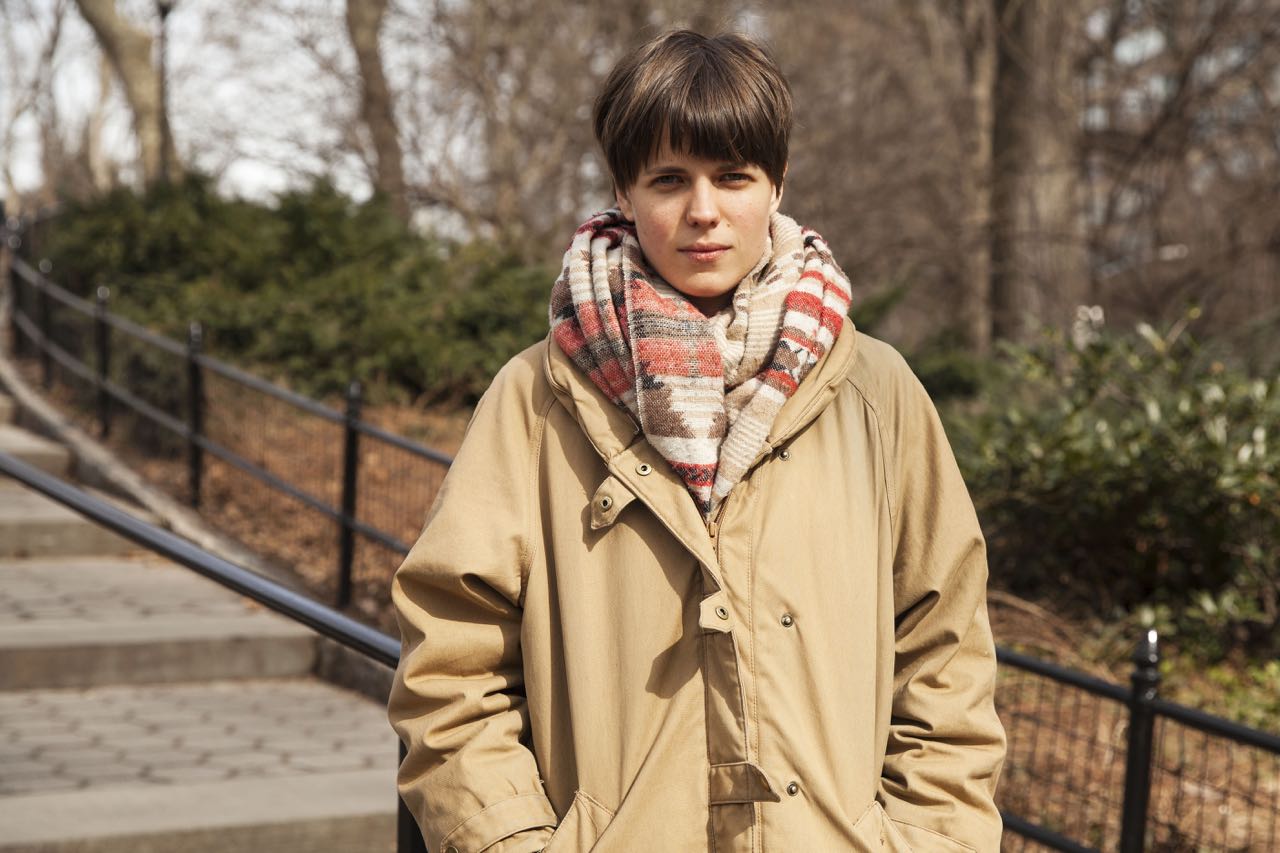
I want to go back to something that you all kind of touched on, which has to do with when people give notes and when they don’t, and how that’s dealt with. What have all of your experiences been like with figuring out how to assert yourselves? Do you feel like you have to put more effort into being taken seriously?
Mfoniso: Playwrights Realm did offer me a place to begin to develop those skills. I think where I am in 2017 is very different than where I was with that in 2016, in that I am not as afraid to take up space. In fact, I find it crucial in my work to eat the room, if I need to. Because I wrote the play. I’m starting to trust more and more that I know the play, and I’m not saying that to be anti-collaborative. I think sometimes that is a battle, going, “Oh God, if I stand up for my play and the impulse from which I wrote this moment in the play, am I not being collaborative?” I’m starting to let that go. And there is a thing where I’m like, “Oh God, how am I being perceived?” I am a woman and also a black woman, and there are so many tropes I could fall into. [For example] “Oh, she’s a little angry today.” But I give no fucks. Because I can’t. There were moments when Katherine Kovner [Artistic Director] looked at me and said, “It’s okay to say no. It’s okay if you want to have a little bit of a temper tantrum right now. To have one, and not worry about what people think about you. Because we’re here because you wrote this play.” And I’m like, “You know what? That’s true. And that’s okay.” And the moments where I stand up for myself, I’m not just standing up for myself, I’m standing up for my play. With time, I’m becoming more and more comfortable taking up the space that me and my play need to take up.
Sarah: I am a shy, soft-spoken person and a shy, soft-spoken woman, and I feel like that sometimes leads people to think that I don’t hold firm opinions about my work, which I do. And I feel like I’m still on that journey of figuring out how to best express myself in front of everyone and take up space in the room. But I think it is a mistake to assume that a writer wouldn’t have deeply convicted opinions about their own work.
Jen: I think there is a balance that is particularly difficult for women, between being firm and being a bitch. And I think sometimes you have to be willing to be both. But I also think as we grow and deepen into our craft, I am aware of when I am being underestimated, but I also no longer feel the need to prove myself in some ways. I know what the work is. I know what I need to accomplish. And I know that when we start deviating from the way this thing looks and functions, you and I are going to need to have a conversation about that. A big lesson for me has been that I can’t be too invested in how I’m being perceived. I can’t be too invested in shifting the set of biases from which someone is perceiving me. I need to be invested in my work, I need to be invested in maintaining the healthiest and most collaborative rehearsal room I can be in. It’s really important to me in those situations to be really professional. And being professional also means being firm when something is going in deeply the wrong direction. But being firm without making someone feel stupid or shutting them down, and I think it’s a lot easier to do that if I’m not, in the back of my mind, being like, “Oh well if I was a guy, you’d be treating me in a totally different way.” We can all acknowledge that, but I can’t get too wrapped up in that part of it because I can’t control that part.
What’s something each of you thinks can be done to improve gender equality in theatre?
Jen: From the most macro levels, get more critics who are women and people of color. And queer people. Because if every play is being evaluated by a particular standard that does not include those narratives, then you’re going to get the same kind of reviews. I feel like, regardless of value judgment, often critics are the ones that are steering conversations or shutting down conversations around certain types of work. And if you, as a critic, are shutting down or steering those conversations depending on whether or not you’re seeing yourself in that work, and if the only critics who are going to see these works are white men, then we have a problem.
Sarah: I agree with Jen. And there’s a petition circulating right now to that effect by Winter Miller advocating for a person of color who’s a woman or trans to be the second string critic for The New York Times. And I do feel like that’s instrumental in representing and reflecting the great diversity of our stages, hopefully, and our city and our country.
Mfoniso: I live at the intersection of: I’m black and I’m a woman. I am all on board with the critics [diversifying]. It’s been an issue. We are at a moment when we can maybe take a stab at maybe doing something about it. Also, when I walk into a room I wonder where the black women are. What’s your development department look like? What’s your marketing department look like? What do all of your departments look like in terms of where are the people of color who are also women? And sometimes that is vastly lacking. So when you talk about what we can do for gender equality, beyond what’s happening with the plays, what’s happening with the rooms that are choosing the plays? And how do we disrupt narratives on the tail end, as opposed to just what we can see and taste? Because before you get to the show there’s a whole process. And who were the decision makers in that process?

